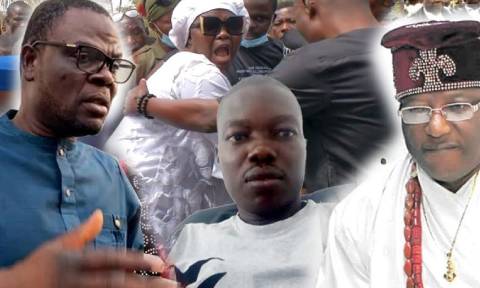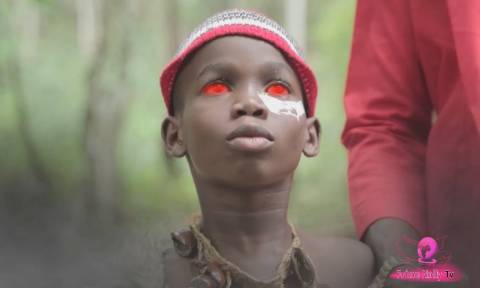Perhaps because of the huge developmental deficit the Niger Delta region had suffered in the past fifty years of nationhood, the founding of the Niger Delta Development Commission (NDDC) may have focused an initial interest in the provision of basic physical infrastructure to enable the region have a breather on what ought to be.
Thus the first set of administrators to superintend over the commission (NDDC), sought to provide facilities like roads, bridges, building of schools, hospitals, plus the renovation of existing ones; shoreline protection, mass transit schemes, land reclamation rural electrification etc.
But even in the face of the much that was done, several people still asked the question: “what has the NDDC done?” This question could either arise from sheer mischief (for those who know), or could also arise from the fact that even the much done seems still too little compared to the volume of the task left undone. Either way however, the truth remains that much has been done, and yet even much more remains undone.
And so when the Chibuzor Ugwoha administration took over at the NDDC about a year ago, there was a near policy shift in the focus of the commission. As the Managing Director, and coming from the oil and gas background, Ugwoha had critically examined the sociological background of the crises that have continued to trouble the region, and decided to re-invent the commission by tackling some of the underlying basic needs of the people of the region.
In doing so, he reasoned, correctly, that there are two economies in the region: the agricultural economy and the oil and gas economy. That while the former is the old and traditional way of life of the people of the region, the latter is the one that arose from the natural resource of oil and gas endowment in the region, which has provoked oil and gas exploration activities. While the former economy requires little or no skill to execute, the latter requires special technical skill to execute.
Ugwoha notes that the youths and personnel of the region do not have persons with requisite skill to fit into the oil and gas economy. He argues further that while the agricultural economy is predicated on peasantry, the oil and gas economy is a huge cash spinner for its practitioners. That explains why there is huge pressure to fit into the oil and gas economy so the youths of the region can also become mega cash earners. But he laments that “the oil and gas economy generates jobs which cannot be fed by the people of the region because of poor training.”
So, Ugwoha re-directed the focus of the commission to training and raising a workforce that can fit into, and even begin to run, the oil and gas economy; if nothing else, also because of the fad for the new mantra on local content demand in the oil, gas and allied industries of the nation.
He argues that most of the violence in the region arise out of frustration of the youths who feel that the tide of development has passed them. As he put it “when a man is hungry and has no hope, he may want to end everything today because he feel that tomorrow may be worse”.
And so the commission has long embarked on a series of training of several categories of youths in the region for the ultimate equipage of fitting into the oil and gas economy.
According to Abraham Ogbodo, the Senior Special Assistant to the MD, “we have begun the training of 250 graduates in film production. The beneficiaries, according to Ogbodo, were trained in collaboration with a New York based film academy with Stephanie Okereke as the local co-ordinator. The beneficiaries have long perfected their skills and many of them have become self-employed.
Also recently, a set of twenty-four welders out of the twenty-five welders sent to the South African Institute of Welding returned to Nigeria after intensive training programme and certification in South Africa. Ogbodo explained that their skills were “brushed up” at the Petroleum Training Institute, Effurun, before they were sent to South Africa. The PTI was supported with a 25KVA generating plant by the NDDC to facilitate the pre-South African training experience.
The internationally-certified welders, according to Ogbodo, signed a bond with the commission to become trainers of other 700 welders upon their return from South Africa, before they can engage on their own ventures. Ugwoha informed that Nigeria has only 38 internationally certified welders, out of which the commission has provided 24. He noted that the training scheme has had the blessing of the Nigerian Institute of Welding, which is planning to establish a training institute in Ologbo, Edo State.
And under the Niger Delta Technical Aid Corps (N’TAC), an initiative of the Ugwoha-led administration, some 2000 youths of the region have been absorbed in a quasi-employment scheme. As Ugwoha explained, out of the 57,000 youths that applied for the programme, some 2000 of them were selected, and have been posted to various establishments in what looks like “Industrial Attachment” scheme, except that this will last for two years.
Each beneficiary will earn about N45,000 per month. While the NDDC pays N30,000, the benefiting organisation where the beneficiary is offering service, pays the balance of N15,000. The scheme has a life span of two years, “after which the participant would have gained basic and cognate experience to enable him/her look for some other job, or establish own enterprise or sort himself/herself out in the labour market”
But aside the human capital development, Ugwoha said the commission has also set up some Dialysis centres in the region so as to address the increasing cases of organ failure of the people. The centres, costing $30,000, he said, will be ready for use at the end of the first quarter of next year.
Similarly, the NDDC has commissioned a technical design of the planned coastal road to link Calabar to Lagos, a 630 km road project that is estimated to cost N1.8 trillion. Ugwoha said 75 per cent of the design is ready.
Aside the 145 mega projects that are on-going and at various stages of completion at the region, Ugwoha said the commission has long embarked on mega rice farm projects fitted with a rice mill at Elele, Rivers State. The produce from the farm, he said, can compete with even international products.
And in order to drive the development passion down to the grass root, the NDDC chief said there is an on-going collaboration between five local government areas per state, and the commission. Both sides will raise a team to determine areas of development priority in such areas. That while the NDDC will provide a larger percentage of the needed funds to execute identified projects, the concerned councils will provide the rest.
It is believed that all these efforts, further accentuated by the (on-going) restorative /rehabilitative works of the Amnesty programme, will usher in not only an era of peace in the region, but also an age in which the people of the region will climb to the commanding heights of the oil and gas economy, which ultimately will brighten the sociometric indices of the people of the region.



















